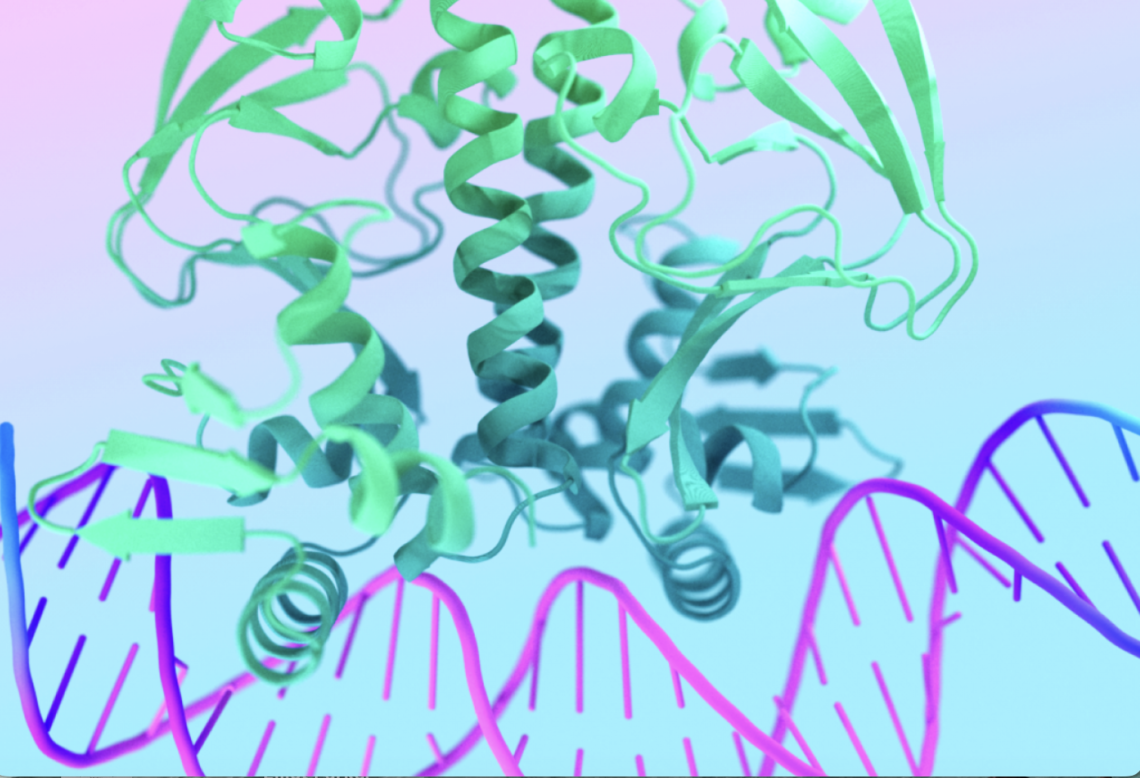Google DeepMind has released a new version of AlphaFold, putting the artificial intelligence software on a path to further accelerate and improve the success of drug discovery by helping understand how to approach new disease targets and developing novel ways to pursue existing ones that were previously out of reach.
In a paper published in Nature, GoogleDeepMind introduced AlphaFold 3, a model it said “can predict the structure and interactions of all life’s molecules with unprecedented accuracy.”
Given an input list of molecules, AlphaFold 3 generates their joint 3D structure, revealing how they all fit together, according to a blog posting by DeepMind spinout Isomorphic Labs, a unit of Google parent company Alphabet created three years ago to commercialize DeepMind’s AI for drug discovery. AlphaFold 3 models large biomolecules such as proteins, DNA, and RNA, as well as small molecules, also known as ligands. What’s more, AlphaFold 3 can model chemical modifications to these molecules which control the healthy functioning of cells, that when disrupted can lead to disease.
AlphaFold 3’s predictions of molecular interactions “surpass the accuracy of all existing systems,” says the blog posting. “As a single model that computes entire molecular complexes in a holistic way, it’s uniquely able to unify scientific insights.”
The new tool is 50% more accurate than the best traditional methods on the PoseBusters benchmark, without needing the input of any structural information, making AlphaFold 3 the first AI system to surpass physics-based tools for biomolecular structure prediction, says the Isomorphic Labs blog posting.
“Using AlphaFold 3 in combination with a complementary suite of in-house AI models,” says the blog posting,“we are working on drug design for internal projects as well as with pharmaceutical partners.”
The AI system has the potential to revolutionize medicine and create “enormous commercial value,” for DeepMind spinout Isomorphic Labs, Demis Hassabis, the chief executive officer of both subsidiaries, said in an interview with Bloomberg Television. “I hope to do both with Isomorphic: build a multi-hundred billion dollar business — I think it has that potential — as well as be incredibly beneficial for society and humanity.’’
DeepMind first released AlphaFold in 2018, with advances in decoding the shape of proteins, a scientific problem often compared to mapping the human genome. Now in its third iteration, AlphaFold’s ability to model a range of molecular structures, including DNA and RNA, and predict how they interact with one another open up fresh opportunities for researchers to speedily identify potential new drug molecules, Max Jaderberg, Isomorphic Labs’ chief AI officer, told the Financial Times.
Isomorphic Labs has partnerships with pharmaceutical companies Eli Lilly and Novartis. “That allows our scientists, our drug designers, to create and test hypotheses at the atomic level, and then within seconds produce highly accurate structure predictions with AlphaFold 3,” Jaderberg said. “This is compared to the months or even years it might take to do this experimentally.”
Within a few years at most it will become a norm in drug discovery to see medicines completely generated by AI, according to a CNBC article.
Exscientia , a pharmatech company positioning itself at the interface of advanced AI application and complex drug discovery, was among the first to have an AI-designed molecule enter clinical trials.“It’s not just about using generative AI to help us to precision design an exact molecule,” Exscientia’s Andrew Hopkins told Nature in a 2023 interview“but also actually helping us precision design which patients are responders and non-responders.”
At the time the 2023 Nature article was written the company had 18 AI-designed drugs in its pipeline, including drugs for COVID-19, tuberculosis, malaria, and hypophosphatasia — a rare, inherited disorder that affects bones and teeth.
While AI has helped companies more quickly identify drug targets and discover new molecules to hit them, clinical trial results for AI-generated drugs developed by other companies, such as Sumitomo Pharma and BenevolentAI, have fallen short in clinical trials.
IN OTHER NEWS THIS WEEK
ARTIFICIAL INTELLIGENCE
Four Startups Lead China’s Race To Match OpenAI’s ChatGPT
Four Chinese generative artificial intelligence start-ups have been valued at between $1.2 billion and $2.5 billion in the past three months, leading a pack of more than 260 companies vying to emulate the success of U.S. rivals such as OpenAI and Anthropic. The newly minted unicorns — Zhipu AI, Moonshot AI, MiniMax and 01.ai — have gained significant backing from a largely domestic pool of investors and are fighting to hire the best talent to develop the most popular AI products.
QUANTUM COMPUTING
Australia’s Deal With U.S. Startup Signals New Hope For Building Commercially Viable Quantum Computer
The government of Australia and the state of Queensland this week committed $620 million between them to back the construction of a full-scale quantum computer near Brisbane by U.S. start-up PsiQuantum. The deal was just the latest sign that a decades-old dream of a new form of computing that takes advantage of the unusual properties of quantum mechanics may finally be coming to fruition. The system in Australia will be “the first machine that crosses over the threshold into [being a] really useful computer — the first quantum system in the world that will be commercially useful”, claimed Pete Shadbolt, PsiQuantum’s chief scientific officer.
To access more of The Innovator’s News In Context articles click here.






